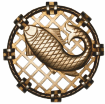Fishery
Catalogue of courses
fields of study: Fishery
Winter semester 2019/2020
1. Fish systematics (winter semester, ECTS 6). The information covering the major groups of fishes worldwide, and oriented to the specimens that are examined in lab will be given. The local species will be emphasized, but also the survey freshwater and marine diversity from a global perspective will be done. During the laboratories students will learn to identify the defining characteristics and evolutionary relationships of the major fish groups.
2. Larviculture (winter semester, ECTS 2). The role of larviculture in the world aquaculture. Characteristics and classifications of the larval development of fish. Factors affecting the quality of fish larvae. Endogenous and exogenous feeding of fish larvae. Critical periods in the larvae development. Production technologies of stocking material of various fish species. Behaviour of fish in relation to the natural environment. Technologies of controlled breeding and rearing of coregonid, percid and cyprinids fish larvae. New data about world results on eel breeding and larviculture.
3. Marketing and information technology (winter semester, ECTS 3). Basic marketing concepts. Types of markets in a developed commodity and money economy. Aquaculture products on national and world food market. Requirements and needs of fish consumers and their preserves. Possibilities of increasing and developing the market potential of the fisheries sector in Poland. Marketing mix. Marketing strategies in fisheries. Basic marketing problems - the choice of the species, the form of the product, the price, the method of promotion and the place (market). Product planning in fishing - IT tools. Attributes of marketing product. Product life cycle. Information technologies as a marketing and advertising tool. Basic types of fish sale promotion and their preserves. Price planning and functions. Factors determining the fish price. Distribution of the fishing product. Distribution policy for fish products, organization and control of aquaculture products sales.
4. Fodder Science and Fish Nutrition (winter semester, ECTS 6). Demand for energy and energy circulation in fish bodies. Processes of digestion and absorption. Usability of different feed components in feeding predatory, omnivorous and herbivorous fish. Specific demand for macronutrients (proteins, lipids, carbohydrates) and micronutrients (vitamins, minerals). Functions of macro- and micronutrients. Non-nutrients added to feed on purpose (attractants, growth simulators, probiotics, binders, colouring agents, antioxidants, medicines), Anti-nutrients. Feeding juvenile stages of fish. Identification of natural, granulated and extruded feed, theory and practice of analyses of the chemical composition of feeds and feed components (laboratory exercises), learning about the technology of industrial feed production, specific feeding of selected species of breeding fish.
5. Cold-water fish aquaculture (winter semester, ECTS 2.5). Technology of the production of rainbow trout (selection, genetic procedures, monosex and sterile populations). Prophylactic measures - hygiene of ponds and rearing tanks, therapeutic bathing, preparation for sale and transport of fish. Production of Atlantic salmon, Pacific salmon, lake trout and common whitefish. Using computer software intended for breeders of salmonids (maintaining daily logs, planning daily amounts of feed with established calorific values for fish of different age categories, long-term planning of production).
6. Fishing technique (winter semester, ECTS 4.5). Basic concepts, methods and techniques for catching fish. Legal conditions of fishing. Classification and characterization tools to catch fish. Fundamentals of materials science network. Spearing, harpooning and shooting fish. The technique of fishing tools trolling. Seining in fresh and sea water. Gillnetting. Lift nets. The use of light in fishing. The use of echolocation in catching fish. The use of electric current in the catches of fish. Catches control, regulatory, economic and inventory. Basic network works. Catches a trap equipment. Field spawners selected fish species. Fishing for a gillnet. Fishing for a hooks. Fishing for towed gear.
7. European Union policy in fisheries and aquaculture (winter semester, ECTS 2). The law governing the common EU policy in the fisheries and the environmental protection. Objectives, tasks and priorities of the integrated maritime policy, the common fisheries policy (CFP) and the European Maritime and Fisheries Fund (EMFF). Current problems and challenges of fisheries and fish farming in Europe. Welfare of fish and the law of the EU. The issue of welfare in the Polish legislation. Organizations, non-governmental organizations in the fishing sector in the EU. European Union action plan to protect biodiversity, climate change, problem of invasive species. Conservation and exploitation of marine resources. Biodiversity strategy for 2020. A strategy for the sustainable development of European aquaculture.
8. Warm-water and tropical fish culture (winter semester, ECTS 2.5). Presentation of warm water and tropical fish species (carp, tilapia, European catfish, pike, zander, African catfish, channel catfish, eel, sturgeon, panga, grass carp, silver carp, barramundi, cobia) and their usability in intensive aquaculture. Feed currently used in intensive aquaculture of warm water and tropical fish and new trends in feeding. Use of geothermal and cooling waters from hydroelectric generating station in aquaculture. Cage breeding – construction and use. Preparing recipes for feed for selected species of warm water fish, taking into account new feed components and feeding trends.
9. Toxicology (winter semester, ECTS 5). The Toxicology course is intended to provide Fisheries students the knowledge about the toxicity of chemical species to finfish both in natural environment and in culture conditions. The lectures cover principles of toxicological processes like toxin bioavailability, toxicokinetics, biotransformation, receptor mediated toxicity, oxidative stress, hepatic and gill toxicity. During laboratory classes, students are introduced to the methods of acute toxicity determination, hematological methods used in toxicological research, toxicity of specific toxicants like: anesthetics, ammonia, nitrites, heavy metals, pesticides and others.
10. Fish diseases (winter semester, ECTS 5). The Fish diseases course is designed to provide Fisheries students the knowledge about environmental, viral, bacterial, fungal and parasitic finfish diseases. The lectures cover the knowledge regarding most important contagious diseases notified by OIE, parasitic diseases important for both wild and cultured fish (caused by algae, apicomplexa, amoebae, protozoa, monogenea, digenea, cestoda, nematoda) and neoplasms. Laboratory classes are aimed at recognizing disease symptoms and pathogenic factors. They consist in performing ichthyopathological examination or analysis of fixed preparations. Information on prevention and control procedures are also provided.
Summer semester 2019/2020
1. Fish reproduction (summer semester, ECTS 5,5). Technologies of fish reproduction, broodstock, release of eggs and milt, gamete quality: evaluation parameters and determining factors, simulate natural environment, dry stripping, hormone induction, induction out-of-season spawning. Short and long-term preservation of fish gametes and embryos. Sex control strategies. Hybrids and polyploid fish – production, biology and applications to aquaculture. Transgenic technology and aquaculture. Gonadal differentiation, ovarian and testicular annual cycle – histological examination. Reproduction behaviour in fish. Estimation of stage maturity in fish female according to microscopic examination of preovulatory oocytes. Estimation of semen quality (motility, concentration, velocity). Short- and long-term semen preservation and their influence on sperm quality. Production of the monosex fish population using hormone therapy and/or genomic engineering methods. Fish anesthesia. Technologies of fish reproduction; formation of spawning protocol (incl. welfare aspects).
2. Fish wellfare (summer semester, ECTS 2). Definitions and concepts related to the welfare of animals. Fish welfare in EU law and Polish legislation. The issue of the live consumption fish selling. Procedures of economic and management in aquaculture and aquatic animal welfare. The specificity of environmental requirements in the context of aquaculture animals welfare. Physiological, biochemical and behavioural animal welfare indicators. Good Fisheries Practice as a strategy for sustainable farming of aquatic organisms in the conditions of concern for their welfare.
3. Applied ichthyology and fisheries (summer semester, ECTS 2). Ichthyofauna in protected areas, fish stocking techniques, creation of artificial breeding sites for fish in freshwater reservoirs and watercourses. Protection of natural fish populations against pressure from fish-eating animals, use of genetics to preserve gene pool of fish population, biomanipulation as tool for recovery of lake water quality.
4. Anatomy and embriology of fishes (summer semester, ECTS 6). Pre-embryogenesis and embryogenesis. Formation of fish skeleton. Structure, origin and functions of epithelial, connective, muscular and nervous tissues. Origin, development and structure of digestive, respiratory, excretory, sexual, lymphatic and circulatory systems. The formation and structure of the central, peripheral nervous system and autonomic nervous system. Sensory organs - construction and formation. Fish endocrine glands – origin, construction and function.
5. Invertebrates aquaculture (summer semester, ECTS 2). The history of aquaculture. Tank, equipment, preparation for foundation breeding. Water filtration and disinfection in RAS. The mussels. Oysters. Pearls. Prawns. Shrimps. Octopus. Lobsters. Crawfish. Crayfish. Aquaculture as a tool to protect the environment. The future and development.
6. Management in aquaculture (summer semester, ECTS 2). Basic concepts and principles of economics. Sustainable use of fisheries resources. Market and market mechanism. External effects in economics. Means of production and investments. The problem of economic investment efficiency. Types of costs, issues related to extensive, semi-intensive and intensive fishing production. The concept of efficiency and productivity and profitability of fishing production. The principle of optimizing decisions in fishery. Money and the financial system.
7. Fundamentals of fishery economics (summer semester, ECTS 3.5).
8. Fish brooding and breeding (summer semester, ECTS 5.5).
9. Lake and river fisheries (summer semester, ECTS 6).


